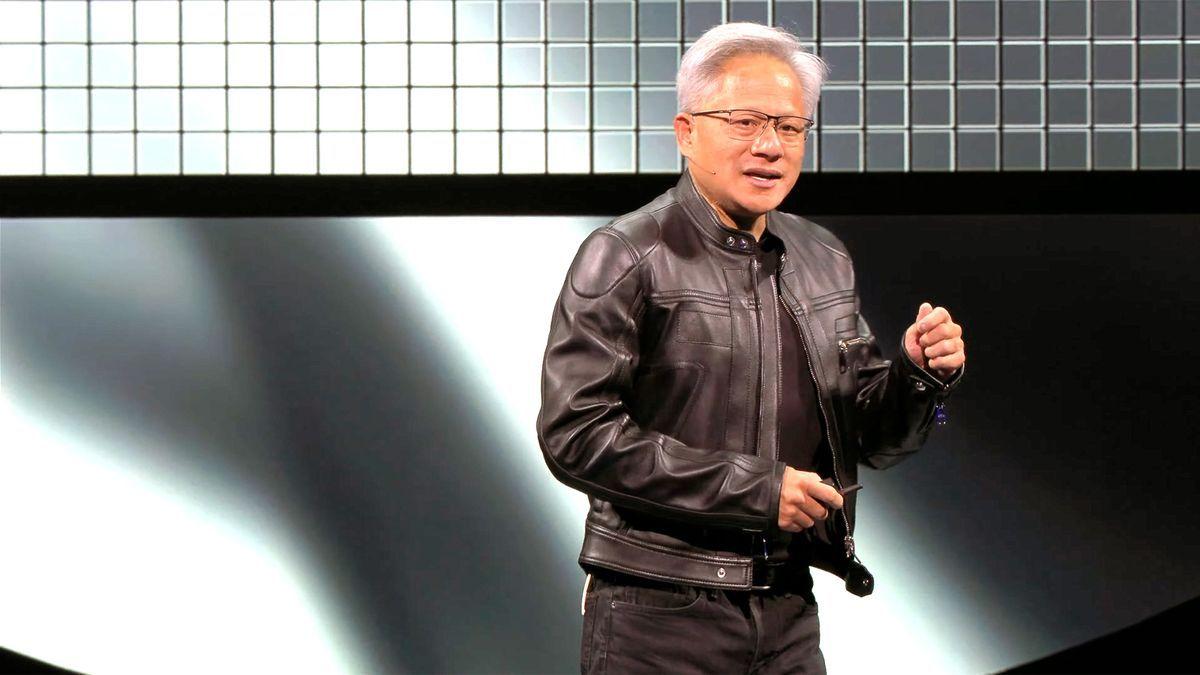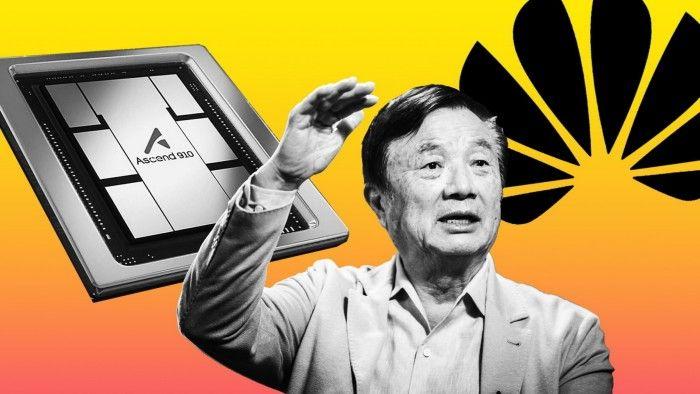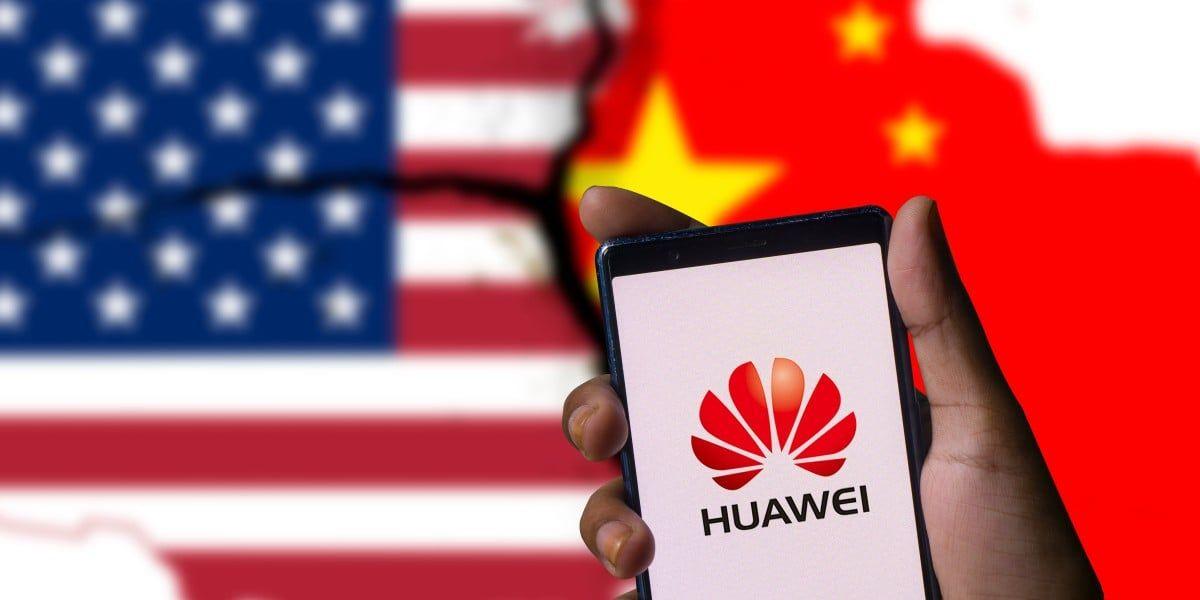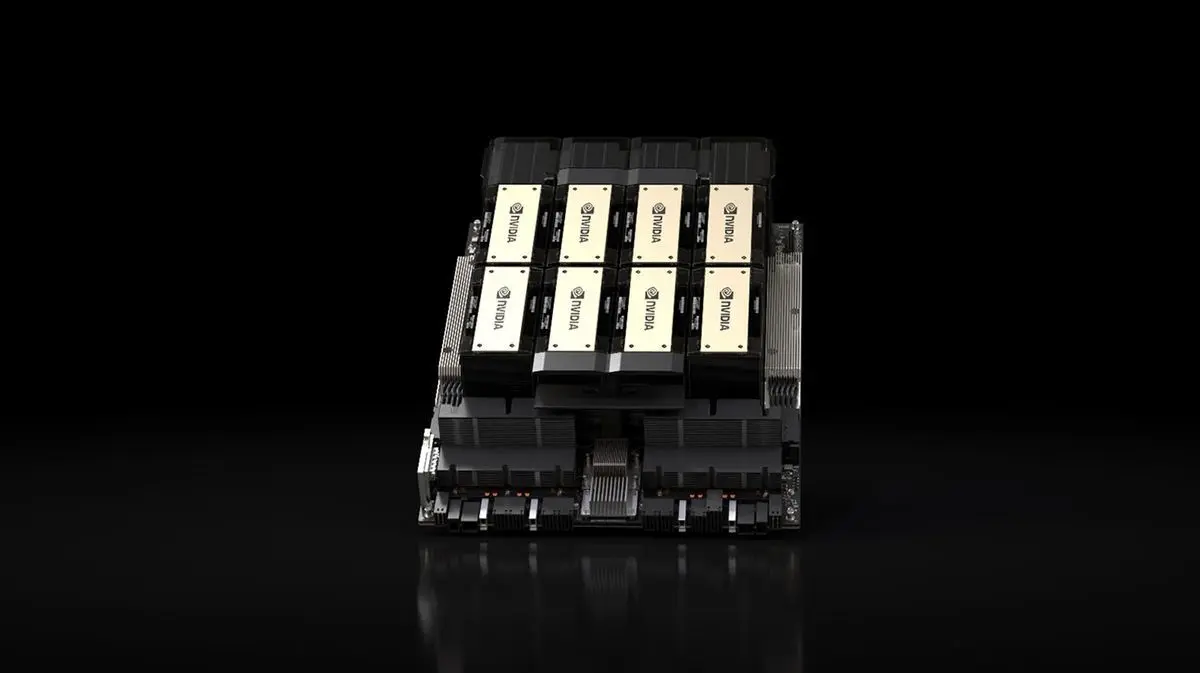Huawei's AI Chip Capabilities: A Balancing Act Between US Claims and Chinese Realities
10 Sources
10 Sources
[1]
Nvidia CEO Jensen Huang says Huawei will take advantage if AI chip restrictions continue -- 'our technology is a generation ahead of theirs', but not for long
If AI developers continue flocking to China, the US will lose its competitive edge "Huawei has got China covered," shared Nvidia boss Jensen Huang when speaking with reporters at VivaTech in Paris this year. Huang warns of potential misplays that could hand a major win to China in the current AI race as the US turns to trade isolationism. China currently stands as the world's second-largest economy, with Huawei being its most notable tech firm. The U.S.-China trade war over advanced chips has been raging for years, and while the U.S. stands as the top dog today, recent decisions from the U.S. government threaten its lead. "Our technology is a generation ahead of theirs," said Huang of Huawei, a claim that Huawei itself affirms internally. But this was followed with a warning: "If the United States doesn't want to partake, participate in China, Huawei has got China covered, and Huawei has got everybody else covered." Since 2020, the U.S. has entertained a policy of banning any large Chinese tech firms from access to advanced chipmaking technologies by placing them on the Department of Commerce's "Entity List", noting firms with ties to foreign security risks, and also by heavily restricting trade of U.S. leading-edge technology into China. However, the situation has escalated in recent weeks as President Trump has launched a more intense tariff offensive against China. The Trump administration recently pledged to "aggressively revoke visas of Chinese students," a move China has responded to by calling its students home and recruiting more AI researchers to its institutions. "If we want the American technology stack to win around the world, then giving up 50% of the world's AI researchers is not sensible," warns Huang. "So long as all the AI developers are in China, you know, I think [the] China stack is going to win. And so we just have to be mindful of near-term actions on long-term, unintended consequences." Concerns of China outpacing and soon surpassing U.S. tech research and production are not new or unfounded. A recent report found that China has doubled the U.S.'s research output on next-generation chip technologies over the last ten years, with a majority of the most-cited and highest-quality studies coming from China. This gulf is only expected to increase as the Trump administration begins to "renegotiate" CHIPS Act contracts, along with its move to defund research institutions. Huang was careful not to criticize or place blame on the Trump administration for recent policy changes that potentially give an edge to China. The president "knows what he's doing," says Jensen. "He has a game plan. I trust him, and we'll support him the best we can." As for Huawei, it knows it still has work to do to reach its U.S. competition. Huawei CEO Ren Zhengfei recently shared, "The United States has exaggerated Huawei's achievements. Huawei is not that great. We have to work hard to reach their evaluation." While Huawei may be humble about its current capabilities, the firm is still nothing to sneeze at, as a leading bastion in various Chinese domestic chip initiatives. As China continues to bolster its domestic chip industry, time will tell if modern U.S. trade initiatives are doing more to help than hinder its progress.
[2]
Huawei founder says USA overestimates its chip chops
Ren Zhengfei says his company is a generation behind, but he knows Huawei to catch up Huawei founder Ren Zhengfei has said the USA overestimates his company's semiconductor design prowess, which is at least a generation behind rival chipmakers. In a friendly interview with Communist Party organ People's Daily, Ren was asked about the USA's recent claim that Huawei's "Ascend" AI accelerator chips are based on stolen American tech, meaning anyone using them anywhere therefore violates Washington's export controls and risks legal action. "There are many chip companies in China, and many of them are doing well," Ren replied, before adding "Huawei is one of them." "The United States has exaggerated Huawei's achievements. Huawei is not that great yet. We need to work hard to live up to their evaluation. Our single chip is still one generation behind the United States." The founder didn't mention which generation he's referring to. Nvidia's current flagship is the Blackwell architecture and if Huawei is a generation behind that it and can match the performance of the Hopper platform it can still produce some mighty powerful kit. If Ren thinks Huawei is a generation behind Nvidia's next-gen Rubin kit, then China already has AI hardware as powerful as anyone's. Asked if China faces difficulties trying to match US tech, Ren said cultivating talent is the main obstacle to China developing advanced semiconductors. However the founder also downplayed the need for chip breakthroughs. "There is no need to worry about the chip problem," he said. "Using methods such as superposition and clustering, the calculation results are comparable to the most advanced level. In terms of software, there will be hundreds of open-source software to meet the needs of the entire society in the future." Ren also expressed optimism that China's "Eastern Data, Western Compute" plan, under which computing workloads are moved to China's renewable-energy-rich west, will work. For what it's worth, China's Ministry of Industry and Information Technology last week issued a "Computing Power Interconnection Action Plan" that calls for "new high-performance transmission protocols to improve the level of network interconnection between computing power nodes" and "cross-subject, cross-architecture and cross-region computing power supply and demand scheduling." People's Daily asked Ren to predict the future of AI and he responded by saying it may be "the last technological revolution in human society", with nuclear fusion another candidate. He predicted AI will "take decades or even hundreds of years" and said China's large population and highly developed power grid are advantages that will mean it is a strong competitor in the field. ®
[3]
Why Is Huawei Downplaying Its Chips?
It may seem like odd messaging from a tech chief. But Huawei Technologies Co. founder Ren Zhengfei said that Americans have "exaggerated" his company's chip achievements, which "still lag behind the US by a generation." When it comes to the race for the hardware needed to support artificial intelligence, his company "isn't that powerful yet," Ren added in a lengthy front-page interview with the People's Daily this week. Still, there is "no need to worry" about the US restrictions, he insisted. By bundling Huawei's chips together, or so-called clustering, they can still match rival offerings from top global players.
[4]
China's Huawei says US is exaggerating its chipmaking capabilities
Huawei's founder said the US was exaggerating the Chinese chipmaker's capabilities and played down his company's technology amid trade talks between Beijing and Washington that include discussions of export controls. In a rare interview with China's state-run People's Daily on Tuesday, Ren Zhengfei said Huawei's Ascend chip, the main rival to Nvidia's products in China, "still lags behind the US by one generation". He added that the "US has exaggerated Huawei's capabilities -- we're not that strong yet". Ren's comments come as Nvidia chief executive Jensen Huang has sounded the alarm in recent weeks on Huawei's progress with its artificial intelligence chips, saying Washington's limits on the US chipmaker selling to China have given rise to a "formidable" competitor that threatens to undermine American dominance of AI technology. The US and China began a new round of trade talks on Monday in London, which included discussion of Washington's export controls on key technology. During the first round of talks in Geneva, the US did not discuss export controls. However, Beijing's recent use of restrictions on some critical rare earths and minerals used in car manufacturing -- which threatens to shut down factory lines in the US, Europe and Japan -- has brought the issue into trade discussions. Huawei has benefited from Washington's ban on shipments of Nvidia chips to China as Chinese tech giants have accelerated purchases of Ascend chips and made preparations to adopt Huawei's technology. Still, the majority of Chinese AI companies, including DeepSeek, use Nvidia chips to train the large language models that power AI tools. Domestic alternatives are increasingly used for the less complex task of calling upon the models to generate responses in tools such as chatbots. Analysts and Huawei researchers have previously complained about technical glitches in using the company's chips for training LLMs, citing difficulty in making the chips work together and distributing computing workloads across them. Ren on Tuesday hinted the company had made strides to resolve these issues, saying Huawei could "compensate" for poorer performance through cluster computing, which involves linking multiple chips to boost AI server power. "Using clustering and stacking, our computing results are comparable to the world's best," he said. Huawei's new CloudMatrix 384 AI server is the centrepiece of its strategy to compete with Nvidia by assembling a large number of chips to bolster bandwidth capacity and handle more data. The server connects 384 AI processors using Huawei's optical technology. Several Huawei customers are already testing the CloudMatrix server, working with the company's engineers to resolve issues related to the heat generated by the large number of chips operating in unison and the machine's weight, said a person involved in the testing. Huawei's biggest challenge was creating "an ecosystem" of developers that will use its platform to build AI models, the person added. One of Nvidia's advantages is its software platform Cuda, which developers say is easy to use. Ren said Huawei was investing Rmb180bn ($25bn) a year on research and development, with Rmb60bn going into basic research not aimed at developing products but making breakthrough discoveries. Ren said China had distinct advantages when building out its technological capabilities. "AI depends on abundant electricity and advanced network infrastructure," he said. "China's power generation and grid systems are world-class. Our telecoms infrastructure is the most advanced in the world."
[5]
US exaggerating Huawei's AI chip achievements, China state media quotes CEO as saying
BEIJING, June 10 (Reuters) - The United States is exaggerating Huawei's achievements when it comes to the Ascend AI chip, the chief executive of China's Huawei Technologies said, according to Chinese state media. Huawei's founder Ren Zhengfei said the company uses group computing to supplement single chips, according to an article by the People's Daily on Tuesday. The U.S. Commerce Department last month published guidance warning that companies risked violating U.S. export controls by using Huawei's Ascend AI chips, the Shenzhen-based tech company's most advanced semiconductor series. Reporting by Liz Lee and Shanghai newsroom; Editing by Muralikumar Anantharaman Our Standards: The Thomson Reuters Trust Principles., opens new tab Suggested Topics:Media & Telecom
[6]
Huawei 'has got China covered' if the U.S. doesn't participate, Nvidia CEO tells CNBC
Nvidia CEO Jensen Huang gives a keynote address at CES 2025, an annual consumer electronics trade show, in Las Vegas, Nevada, U.S. Jan. 6, 2025. If the U.S. continues to impose AI semiconductor restrictions on China, then chipmaker Huawei will take advantage of its position in the world's second-largest economy, Nvidia CEO Jensen Huang told CNBC Thursday. "Our technology is a generation ahead of theirs," Huang told CNBC at the sidelines of the Viva Technology conference in Paris. However, he warned that, "if the United States doesn't want to partake, participate in China, Huawei has got China covered, and Huawei has got everybody else covered."
[7]
Huawei founder says chips still lag 'one generation' behind US
Beijing (AFP) - Chinese tech giant Huawei's chips still "lag behind the United States by one generation", state media quoted its founder and CEO Ren Zhengfei as saying in a rare interview on Tuesday. Washington last month unveiled fresh guidelines warning firms that using Chinese-made high-tech AI semiconductors, specifically Huawei's Ascend chips, would put them at risk of violating US export controls. The Shenzhen-based company has been at the centre of an intense standoff between the economic supergiants after Washington warned its equipment could be used for espionage byBeijing, an allegation Huawei denies. Speaking to the People's Daily, the official newspaper of the ruling Communist Party, 80-year-old Ren insisted the United States had "exaggerated" Huawei's achievements. Tougher controls in recent years have prevented US chip giant Nvidia, one of Huawei's rivals, from selling certain AI semiconductors -- widely regarded as the most advanced in the world -- to Chinese firms. As a result, it is now facing tougher competition from local players in the crucial market, including Huawei. Nvidia's chief executive Jensen Huang told reporters last month that Chinese companies "are very, very talented and very determined, and the export control gave them the spirit, the energy and the government support to accelerate their development". But Ren said Huawei was "not that great yet", according to the article published on the newspaper's front page Tuesday. "Many companies in China are making chips, and quite a few are doing well -- Huawei is just one of them," he added. When asked about "external blockades and suppression" -- a veiled reference to US export restrictions on Beijing -- Ren said he had "never thought about it". "Don't dwell on the difficulties, just get the job done and move forward step by step," he added. Sanctions since 2019 have curtailed the firm's access to US-made components and technologies, forcing it to diversify its growth strategy. China has accused the United States of "bullying" and "abusing export controls to suppress and contain" the country's firms.
[8]
Huawei founder waves off US chip curbs while trade talks proceed
Ren Zhengfei, Huawei founder and one of the country's most recognisable business figures, told the Communist Party's official newspaper he wasn't worried about Washington's efforts to cut off the flow of US technology to China's chip sector. He also expressed confidence that China can make breakthroughs in AI and software.Huawei Technologies Co. founder Ren Zhengfei dismissed the impact of US export restrictions on China in a front-page People's Daily article, wading into one of the key topics dogging Washington-Beijing trade negotiations. Ren, one of the country's most recognisable business figures, told the Communist Party's official newspaper he wasn't worried about Washington's efforts to cut off the flow of US technology to China's chip sector. Domestic firms could resort to means such as chip packaging or stacking to achieve results similar to that from advanced semiconductor technology. The Huawei founder also expressed confidence in the interview that China can make breakthroughs in AI and software, particularly in an increasingly open-source environment. The US has put restrictions on chip design programs for Chinese firms, though Washington could also remove those pending the outcome of talks. The prominently placed article appears timed to coincide with a second day of sensitive negotiations between the US and China, which are seeking to ease tensions over shipments of technology and rare earth elements. US Commerce Secretary Howard Lutnick's presence at the talks underscore the importance that export controls are playing in these discussions. Lutnick has said China isn't capable of producing high volumes of sophisticated semiconductors, a sign American export controls are limiting its progress. Semiconductor packaging or stacking refers to the techniques of bundling chips together to make them more powerful -- Huawei has been relying on this method to make its most powerful AI chips at Semiconductor Manufacturing International Corp., aiming to develop silicon as sophisticated as what Nvidia Corp. offers. Huawei has in past years evolved from a telecom gear and smartphone maker into one of China's national tech champions, making advances in semiconductors, EVs and AI. It's also one of Washington's biggest targets, given persistent accusations of its ties to Beijing. The company has repeatedly stressed it's an employee-run company. Ren, a former People's Liberation Army officer, has emerged as one of the tech sector's most prominent voices since the first Trump administration added the company to the so-called Entity List. That move significantly curtailed Huawei's access to US technologies, initially walloped the business and sped its exit from several major markets. But Huawei has since regained market share in smartphones, developed a more advanced process than the US thought possible, and is now making inroads into the AI and EV software markets. In May, Nvidia Chief Executive Officer Jensen Huang said that Chinese AI rivals are filling the void left by the departure of US companies from that market, and their technology is becoming more powerful.
[9]
Nvidia's Jensen Huang Once Called Huawei China's Most Formidable Tech Company, But CEO Ren Zhengfei Says Its Chips Still Lag Behind US Rivals - NVIDIA (NASDAQ:NVDA)
In March, Nvidia Corp. NVDA CEO Jensen Huang praised Huanwei Technologies as China's "most formidable technology company." On Tuesday, Huawei's founder and CEO, Ren Zhengfei, downplayed the hype, stating that the company's chip technology still trails that of the U.S. What Happened: In an interview with China's state-run People's Daily, Zhengfei said that the company's chips remain "one generation behind" those of U.S. competitors, reported Reuters. "The United States has exaggerated Huawei's achievements. Huawei is not that great. We have to work hard to reach their evaluation," he stated, adding, "Our single chip is still behind the U.S. by a generation." See Also: Disney Will Pay Comcast $439 Million To Seal Hulu Deal, Ending Years-Long Streaming Power Struggle "We use mathematics to supplement physics, non-Moore's law to supplement Moore's law and cluster computing to supplement single chips and the results can also achieve practical conditions. Software is not a bottleneck for us," the CEO continued. Huawei is investing 180 billion yuan (approximately $25 billion) annually in research and development, with one-third allocated to theoretical research, Ren said during the interview. Subscribe to the Benzinga Tech Trends newsletter to get all the latest tech developments delivered to your inbox. Why It's Important: Huawei's Ascend line of AI chips directly rivals Nvidia's in the Chinese market. While Nvidia remains the global leader in AI chip technology, U.S. export restrictions have prohibited it from selling its most advanced chips to China, allowing Huawei to gain ground. In May, the U.S. Commerce Department stated that deploying Ascend chips could breach export control regulations. In April, Huawei introduced the "AI CloudMatrix 384" -- a cluster integrating 384 Ascend 910C chips designed for training AI models. Analysts suggest this system may surpass Nvidia's GB200 NVL72 in certain performance metrics. Last month, it was reported that Huang cautioned that restricting access to China's rapidly growing AI market could negatively impact not only Nvidia but also U.S. jobs and technological innovation. Nvidia is showing a strong upward price trend across short, medium and long-term periods, according to Benzinga's Edge Stock Rankings. Additional metrics can be found here. Check out more of Benzinga's Consumer Tech coverage by following this link. Read Next: Alibaba, JD See Sales Soar In 618 Festival, Apple And Xiaomi Emerge As Top Selling Brands Disclaimer: This content was partially produced with the help of AI tools and was reviewed and published by Benzinga editors. Photo courtesy: jamesonwu1972 / Shutterstock.com NVDANVIDIA Corp$142.870.17%Stock Score Locked: Edge Members Only Benzinga Rankings give you vital metrics on any stock - anytime. Unlock RankingsEdge RankingsMomentum70.43Growth98.63QualityNot AvailableValue7.19Price TrendShortMediumLongOverviewMarket News and Data brought to you by Benzinga APIs
[10]
Huawei chips are one generation behind US but firm finding workarounds, CEO says
BEIJING (Reuters) -Huawei Technologies' chips are one generation behind those of U.S. peers but the firm is finding ways to improve performance through methods such as cluster computing, Chinese state media quoted CEO Ren Zhengfei as saying on Tuesday. The chipmaker invests 180 billion yuan ($25.07 billion) in research annually and sees promise in compound chips - chips made from multiple elements - Ren said in an interview with the People's Daily newspaper of the governing Communist Party. There is "no need to worry about the chip problem", Ren said, addressing concerns stemming from U.S. export controls. The article, published on the front page of the newspaper, come as top U.S. and Chinese officials are set to resume trade talks for a second day in London where topics such U.S. tech restrictions on China are expected to be discussed. Since 2019, a slew of U.S. export curbs, aimed at curbing China's technological and military advancements, have restricted Huawei and other Chinese firms from accessing high-end chips and the equipment needed to produce them from abroad. Ren's comments are the first ever from him or Huawei about the company's advanced chipmaking efforts, which have become a flashpoint in U.S.-China tensions. Huawei is just one of many Chinese chipmakers, Ren said in the interview, adding: "The United States has exaggerated Huawei's achievements. Huawei is not that great. We have to work hard to reach their evaluation." "Our single chip is still behind the U.S. by a generation. We use mathematics to supplement physics, non-Moore's law to supplement Moore's law and cluster computing to supplement single chips and the results can also achieve practical conditions. Software is not a bottleneck for us," he said. Cluster computing is when multiple computers work together. Moore's law refers to the speed of chip advancement. HUAWEI'S LAUNCHES Huawei's Ascend series of AI chips compete in China with offerings from Nvidia, the global leader in AI chips. The U.S. commerce department last month said the use of Ascend chips would be a violation of export controls. Nvidia's AI chips are more powerful than Huawei's but the company has been barred by Washington from selling its most sophisticated chips to China, causing it to lose significant market share to Huawei. In April, Huawei launched "AI CloudMatrix 384", a system that links 384 Ascend 910C chips in a cluster that companies can use to train AI models, which has been described by analysts as able to outperform Nvidia's GB200 NVL72 system on some metrics. Dylan Patel, founder of semiconductor research group SemiAnalysis, said in an article that month that it meant that Huawei and China now had AI system capabilities that could beat Nvidia. Nvidia and the U.S. commerce department did not immediately respond to a request for comment on Ren's remarks. Ren also said about a third of Huawei's annual research spending went to theoretical research while the rest was spent on product research and development. "Without theory, there will be no breakthroughs, and we will not catch up with the United States." ($1 = 7.1802 Chinese yuan) (Reporting by Liz Lee, Shanghai newsroom and Brenda Goh; Additional reporting by David Shepherdson in Washington; Editing by Muralikumar Anantharaman and Christopher Cushing)
Share
Share
Copy Link
Huawei's founder downplays the company's AI chip capabilities amid US-China tech tensions, while Nvidia's CEO warns of potential consequences of restricting AI chip sales to China.
Huawei's AI Chip Capabilities: A Delicate Balance
In a surprising turn of events, Huawei's founder Ren Zhengfei has downplayed the company's AI chip capabilities, stating that the United States has "exaggerated Huawei's achievements"
2
. This comes in stark contrast to recent claims by Nvidia CEO Jensen Huang, who warned that Huawei could take advantage if AI chip restrictions continue1
.
Source: Tom's Hardware
The Technology Gap
Ren Zhengfei admitted that Huawei's single chip technology is "still one generation behind the United States"
2
. This acknowledgment aligns with Nvidia's assertion that their technology is currently "a generation ahead" of Huawei's1
. However, Ren emphasized that Huawei can compensate for this gap through methods such as superposition and clustering, potentially achieving calculation results comparable to the most advanced levels2
4
.US-China Tech Tensions
The statements come amidst ongoing US-China trade tensions, particularly in the advanced chip sector. The US has implemented policies restricting large Chinese tech firms' access to advanced chipmaking technologies
1
. These restrictions have led to concerns about China potentially outpacing US tech research and production in the near future1
.Nvidia's Warning
Jensen Huang has expressed worry about the unintended consequences of these restrictions. He cautioned that if AI developers continue to flock to China due to these policies, the US could lose its competitive edge
1
. Huang stated, "If we want the American technology stack to win around the world, then giving up 50% of the world's AI researchers is not sensible"1
.Huawei's Strategy and Progress
Despite downplaying their current capabilities, Huawei is making significant strides in AI chip development. The company's new CloudMatrix 384 AI server, which connects 384 AI processors using Huawei's optical technology, is at the forefront of their strategy to compete with Nvidia
4
. Huawei is also investing heavily in research and development, with an annual budget of 180 billion yuan ($25 billion)4
.
Source: FT
Related Stories
China's Advantages
Ren Zhengfei highlighted China's advantages in the AI race, including its large population, highly developed power grid, and advanced telecommunications infrastructure
2
4
. These factors could potentially accelerate China's progress in AI technology development.Global Implications
The ongoing debate over Huawei's AI chip capabilities has significant implications for the global tech industry and international relations. As the US and China continue their trade talks, which now include discussions on export controls
4
, the future of AI chip development and distribution remains uncertain.
Source: The Register
In conclusion, while Huawei may currently lag behind in single chip technology, their strategic approach and China's inherent advantages suggest that the gap may be closing rapidly. The global tech community will be watching closely as this situation unfolds, potentially reshaping the landscape of AI technology development and international tech competition.
References
Summarized by
Navi
[1]
[2]
[3]
Related Stories
Nvidia CEO Urges AI Export Rule Revision Amid Global Competition and China's AI Advancements
01 May 2025•Technology

Huawei's AI Chip Ambitions Stalled by US Sanctions, Mass Production Planned for 2025
19 Nov 2024•Technology

US Tech Czar Warns: China Rapidly Closing AI and Chip Design Gap
19 Jun 2025•Policy and Regulation

Recent Highlights
1
ByteDance Faces Hollywood Backlash After Seedance 2.0 Creates Unauthorized Celebrity Deepfakes
Technology

2
Microsoft AI chief predicts artificial intelligence will automate most white-collar jobs in 18 months
Business and Economy

3
Google reports state-sponsored hackers exploit Gemini AI across all stages of cyberattacks
Technology





